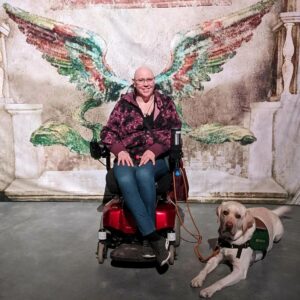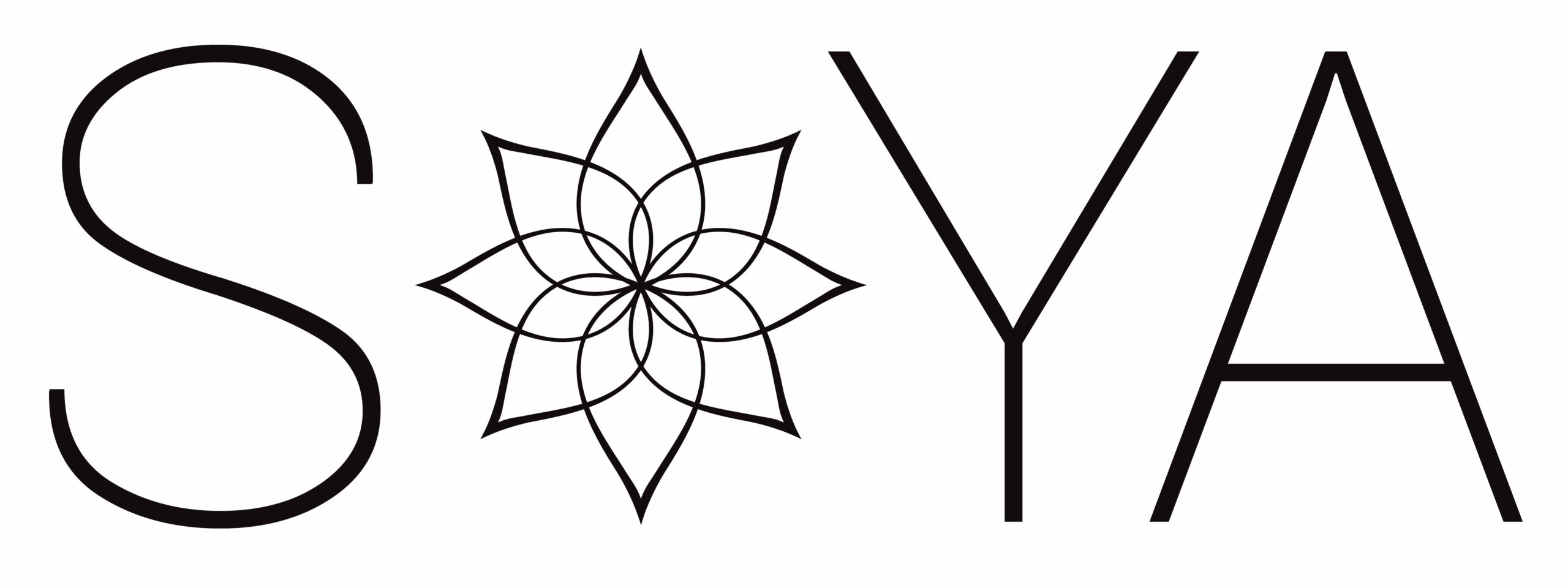Article written by Jo Cook-Yorke
I have had FND since 2016.
At the age of 47, I woke up not able to balance or walk and having multiple seizures. The easiest explanation of Functional Neurological Disorder (FND) is a disconnect of the signals between the nervous system and the brain.

Functional Neurological Disorder (FND) is a disconnect of the signals between the nervous system and the brain.
Some use the computer analogy that it’s a software problem affecting the hardware…I prefer to look at it as the brain speaks English and the nervous system is speaking Greek. Both are correct in explaining that there is a communication breakdown causing problems with the body functions. The symptoms of FND are varied and complex including, but not limited to, tremors, walking and gait issues, dystonia, seizures, speech and/or swallowing problems, pain, fatigue, brain fog and many many more. I personally have a truncal tremor, gait issues, and foot drag which affects my balance and walking, chronic low back pain, fatigue, and brain fog. I also have 3 distinct types of seizures, all of which are non epileptic…these are sometimes called Psychogenic Non-Epileptic Seizures. I reject this label as it implies the seizures are to do with psychological factors and are not real or physical in nature.
That being said, my symptoms not only affect me on a physical scale, they also take a large toll on my mental health as well, not the other way around. In order to function with my symptoms, I use a walker and wheelchair for mobility, a Service Dog to aid with mobility as well as for pre and post seizure support, multiple organizational tools for brain fog, and medication for the pain.
To aid in my overall health both physical and mental, I do yoga.
I had the incredible good fortune to meet Becky Stone in 2018 when we were both taking part in an online course. We then connected in person and that’s when we REALLY hit it off! After some discussion about my health issues, she asked me if I had ever tried yoga which I hadn’t. I always thought yoga was for the incredibly flexible and able, which I wasn’t. I also thought that relaxation/meditation and breathing techniques were too “new age” voodooish for me, I still have a hard time with meditation but still working on it. How wrong I was on both counts! After some coordination of how my physical limitations would be accommodated and safety protocols were put in place for seizure management, I started classes online with her in 2019. I have to say the first few weeks were challenging for me, I was uncoordinated(still am), in pain, and was having seizures during class. Becky was, and is, so patient and supportive. She just kept telling me it would get better and laughed with me at my efforts as any great teacher would. She even got accustomed to the seizures, she is so amazing! We have been working together ever since.
I learned that yoga is adaptable.

Jo Cooke-York has found yoga practices that support her in her physical health and mental wellness.
Becky showed me that yoga isn’t just for the instagram models in their Lululemon garb sweating in a studio that’s a million degrees Celsius, or the stereotypical hyper vegans seeking enlightenment on a mountain top. It is for everyone who has a body and mind that needs love and care. All bodies and minds can benefit, regardless of limitations both physical or mental. So I got off the couch away from Netflix and started yoga once a week. Class is very entertaining as I am trying to do the movements I see Becky doing on my screen. Being uncoordinated you need a sense of humor. Through practice, determination and jokes, I have become more pliable…possibly even flexible…ish. When we started, I was having seizures every class. Now 4 years on, the seizures are rarely in class. In fact, I just had my longest stretch between seizures since they started of 28 days…which is amazing! My pain has decreased, depending on the day of course, and I am less bothered by the brain fog. All of which I will attribute in part to yoga…and Becky. Yoga has not only given me the tools to work my body in a way in which is comfortable, but it gives me structure by having class every week. As someone who needs outside motivation, knowing Becky will be waiting for me helps me manage my day. I get some movement in, ease anxiety/ stress, and quiet my mind by focusing solely on yoga for an hour. As my body is learning to move easier, my mind is learning that meditation/relaxation techniques and breathing are actually possible for someone who can’t stop thinking and has millions of thoughts all the time…ok, ok it’s probably ADHD. I know it’s possible to meditate, and I’m getting there one joke and breath at a time.
My weekly yoga class has given me community as well, which we are all in need of. I get to interact with someone other than my dog or my husband, and on a completely different level. Being disabled and not working makes human interactions hard to get, knowing that I have class definitely staves off depression and gives me all the good feels…not to mention I get to have fun with my friend. There are even times we’ve done more laughing and chatting than yoga, all we were missing was the wine. Now, that’s my kind of class! Thanks to Becky talking me into yoga, I have become me again as my body and mind have become stronger and more flexible.
SOYA’s Seva Scholarship Fund.
I wish to give thanks for the Seva Scholarship Fund that SOYA has available. It has helped me to take classes and be able to pay Becky for our time together. Being on disability, not to mention the economy, it is difficult to pay for “optional” treatments such as yoga. I am so blessed that people have donated to the fund and helped me access yoga. Thank you all.

Jo Cook-Yorke lives in Airdrie, Alberta with her husband, Tim, her amazing service dog and a rotating variety of beloved family members and their fur-babies. With grit and humour in the face of her challenges, Jo is determined to enjoy her life to the fullest. She is an outspoken advocate for disability awareness and is helping to educate the general public about the importance of service dog etiquette.
Brain Image credit: Pixabay

Recent Comments